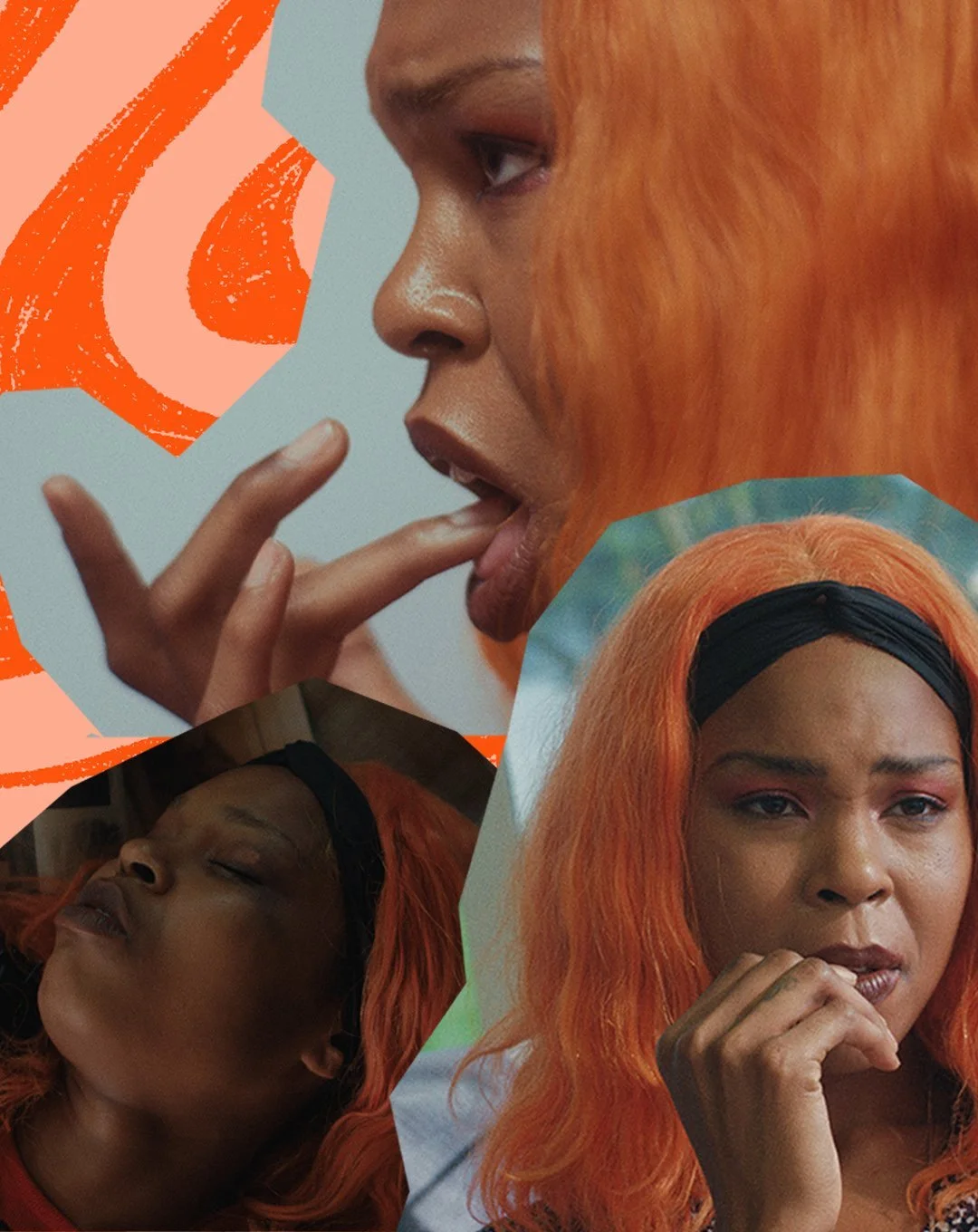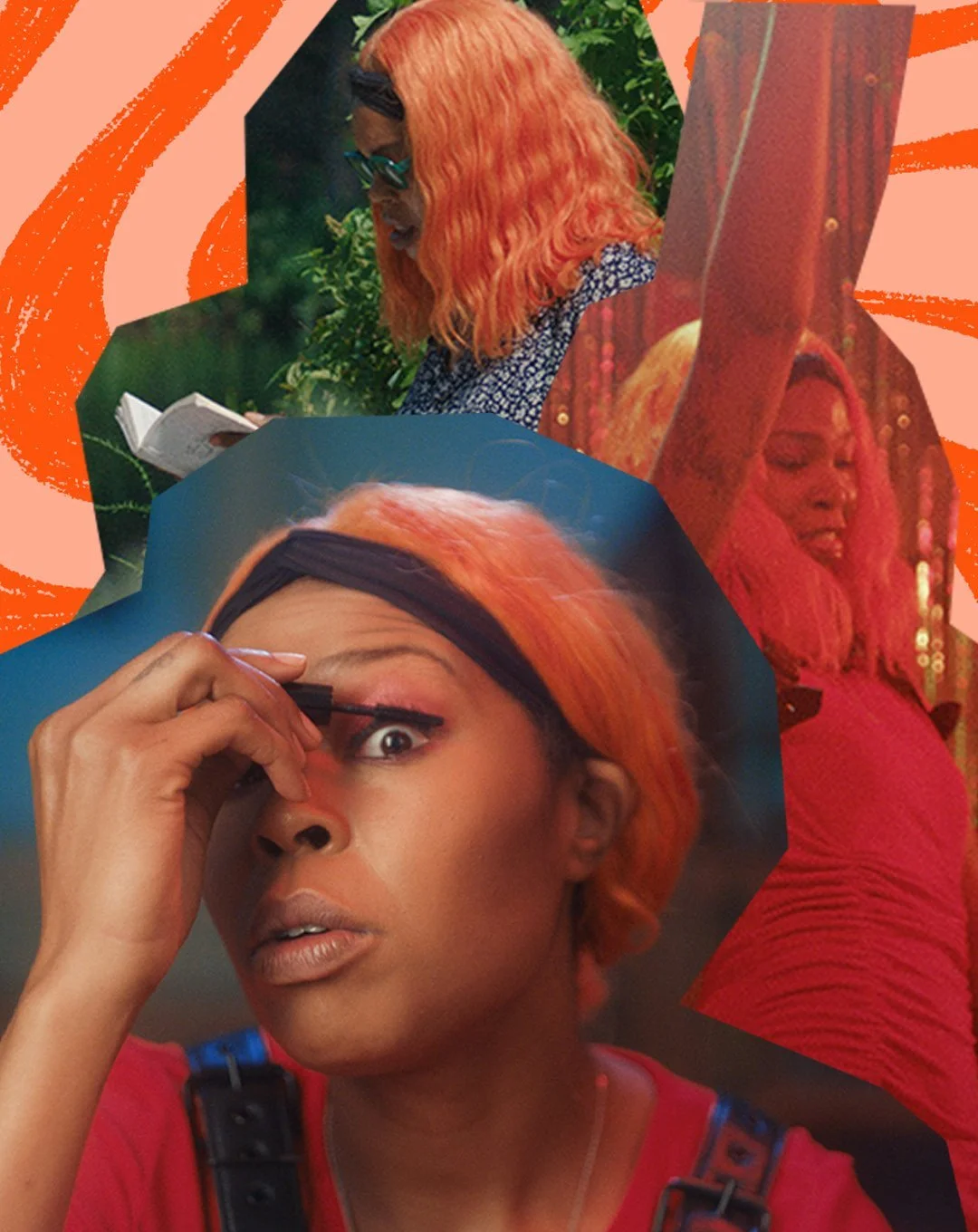The African Desperate and the Achingly Accurate Depiction of Art School
The African Desperate follows the fictional artist Palace Bryant as she navigates her final day of art school, in picturesque upstate New York. Sitting at the side of a lake with her friend, she reflects on her disappointing college experience. “This isn’t it,” she says. “This isn’t my life.” It’s a familiar, lonely feeling, like finding yourself at a party you were desperate to go to, only to realise you’re not having any fun.
The feature debut from multimedia artist Martine Syms, who got her own MFA from Bard College, is a biting satire about a Black girl’s hellish last day in a predominantly white institution. Like much of Syms’ work, the humour is deadpan. Played by real-life artist Diamond Singily, Palace must deal with racist tutors, tedious rich kids, and sexy but indifferent men. It’s no wonder she decides to drown her sorrows. But a swig of small batch Mezcal and an innocent spliff are a gateway to mushrooms, Molly, and Ketamine. Her evening soon turns into a neon-lit bacchanal, her world warping and changing colour as she gets increasingly wasted. Palace’s situation is funny, awful, specific, and feels true.
We’re first introduced to Palace through the objects that line the makeshift altar in her studio. The camera drifts across a copy of the new age cult classic “Women Who Run with the Wolves”, a bundle of sage to cleanse the room’s toxic energy, a purple baseball cap embroidered with the word “titties”. It’s funny to me that Syms begins her film with an if-you-know-you-know reference to a book about the untameable female spirit, and the healing that happens when women share their stories. It is, I think, meant as a joke.
In a moment in the culture where women are encouraged to tell stories about likeable heroines who girlboss their way through adversity, Syms has made a different kind of film. Palace quotes the Black feminist theorist Sadiya Hartman, telling her teachers that in not putting herself in her work, she’s “staking her claim to opacity”. It’s her right not to commodify her identity. The film fits into Syms’ wider body of work, which spans video, photography, sculpture and performance, and deals with the existential malaise of being scrutinised and surveilled while Black.
When defending her thesis in front of an all-white panel, Palace mangles the phrase “African Diaspora”. The film’s title “The African Desperate” is an awkward mistake that sticks. Once again, she’s surrounded by people who patronise and misunderstand her.
One of her tutors, M (played by ecofeminist artist A.L. Steiner), namedrops the Black French theorist Edouard Glissant while criticising Palace for “trying to prove” she’s done the homework. The panel grills her, asking how she plans to differentiate herself from the other female artists “your age and race making the same stuff you’re doing”.
There is no mention of the fact that Palace is a rising star whose work has already been exhibited at the Venice Biennale.
The world that Syms is making fun of is one she knows intimately: one of druggy, creatives who have grown up with money. Liam (Brent David Freaney) insists on introducing Palace to his personal accountant. Portia (Ruby McCollister), a Jewish-Italian white woman who “hates white women” has so much independent wealth, she’s got a “Nicaraguan family” she’s financially supporting. None of her friends are able to lend her an Android phone charger.
The specificity of Syms’ jokes are funnier (and more triggering) if you’ve ever been to a party thrown by art school kids. If you haven’t, you’ll still get the gist, watching Palace angstily pack up her studio to a Fall Out Boy song from 2003. In an interview with the LA Times, Syms described her films as “about the way routine experiences of spectacular and mundane violence create insanity and despair” and the moments “where humour kisses pain”. At the party, an older white male lecturer asks Palace if she’s heard of Lil Uzi Vert. “Yes, I’m familiar,” she says with a dead-behind-the-eyes smile.
Life outside of school is full of small humiliations, too. Palace has a silly crush on a nerdy white boy who’s spent all summer waving at her but is yet to make a move. “Why can’t he be cute?” she moans. “I’m attracted to fuckboys, because I am a fuckboy,” she writes in a text message to a friend. But when he tries to hook up with her at the party she’s meant to be DJing, initially, she’s oblivious. All the code switching has made it difficult to be herself. Performance art is exhausting. When Palace gets her certificate, it’s an anticlimax. She cries, her tears a mix of frustration and relief.
“Syms’ art doesn’t just heal, it wounds.”
Syms makes the point that there’s more to life than art school, but the film still holds space for Palace’s vocation as an artist. Her tutors mock her project (“hunter-gatherer found materials here, appropriated photographs there”) but Syms gives it legitimacy, naming it after one of Stingily’s real life solo exhibitions.
It’s a movie about art making and so Syms is playful with form. Internet memes flash up on screen, and disappear (“Me after crits” reads the text over an image of Kermit the frog calmly drinking tea). Texts are represented as videos, the senders haloed in blue light and performing their messages. The opening credits scroll too quickly; a literalisation of TL;DR. Syms even shoots Palace doing her makeup for the party as a faux YouTube tutorial; she looks into the camera, claiming she’s “not like most girls”. In gossipy conversations, the names of real artists are provocatively bleeped out.
The film ends with a montage of the idyllic college town her protagonist is leaving behind. Cutesy diners, old-fashioned storefronts and rolling green fields are soundtracked by the audio from a clip that went viral on Black Twitter. “She racist as hell, Joe. I see you bitch, every day. You a blue eyed devil. Fucking racist bitch. I quit, y’all,” we hear. The scene would work as its own installation. Syms’ art doesn’t just heal, it wounds.
Words: Simran Hans
To celebrate the release of Martine Syms’ debut The African Desperate on MUBI, we're inviting Polyester readers to sign up to the site to watch The African Desperate – and all their other films! – with 30 days of MUBI for free.


